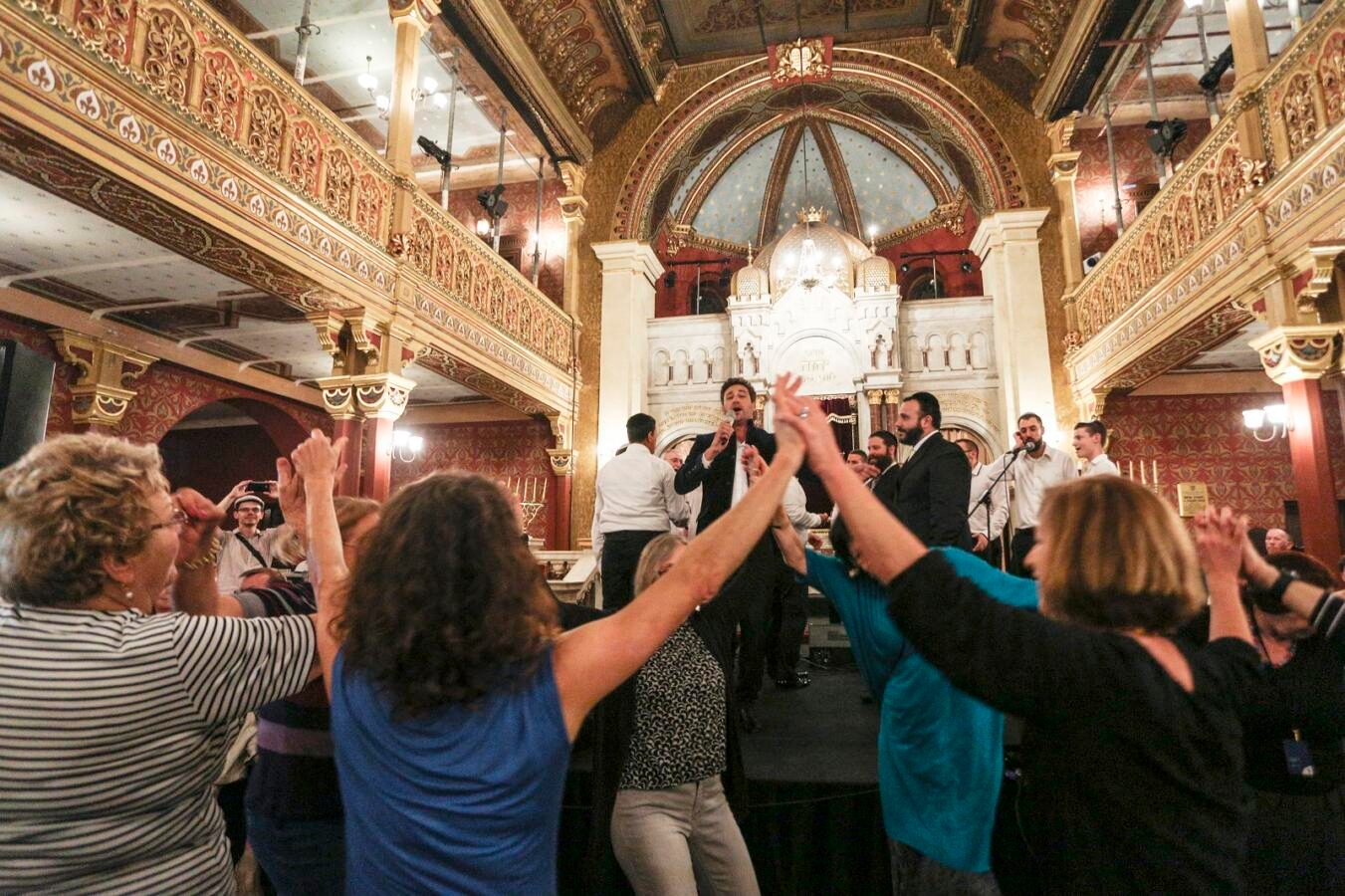Sometimes the 25-hour period of Shabbat, the day of rest, can be so sweet that it’s difficult to see it come to an end. An informal ceremony called a melaveh malkah can soften the blow. After , at a melaveh malkah, friends and family stick around for one more meal. They sing, tell stories, and bid a proper goodbye to the Sabbath until next Friday night.
“Melaveh malkah” literally means “escorting the queen.” Malkah, the queen, is the feminine embodiment of Shabbat itself. The song Lekhah Dodi in the Friday night liturgy welcomes Shabbat as a bride, while the melaveh malkeh sees “her” out as a queen.
Roots of the Queen
The word melaveh comes from the same three-letter Hebrew root as levayah, or funeral ceremony. As one is escorted through the transition from life to death, so too is the Sabbath Queen escorted from her weekly throne into the everyday. In each case, we take memories of the previous stage with us into the next one, easing the loss and enriching the moment.
According to a midrash, the meleveh malkah dates back to the days of King David, who begged God to tell him when he would die. God refused to concede, but did reveal to David that he would die on a Sabbath. Starting that week, David held a celebratory feast at the end of every Shabbat, thanking God and reveling in the joy of being granted one more week of life.
Mystics & Hasidim
The custom of a joyful post-Shabbat meal was adopted by kabbalists in the late 19th century. This mystically-minded group drew connections between Shabbat, which was considered a taste of the world to come, and their fervent belief in the coming of the Messiah and the ultimate redemption of the world. They were reluctant to let this special time end, so they instituted the melavah malkah meal as an extension of the day. They dedicated their celebrations to King David, whose familial line is understood to be that of the Messiah, as well as to other figures such as Elijah the prophet, whom tradition teaches will herald the coming of the Messiah.

Help us keep Jewish knowledge accessible to millions of people around the world.
Your donation to My Jewish Learning fuels endless journeys of Jewish discovery. With your help, My Jewish Learning can continue to provide nonstop opportunities for learning, connection and growth.
Even deeper connections were drawn between the messianic age and the melaveh malkah tradition. A mystically oriented halakhic text called the Kaf HaChaim (literally the “palm of life”) teaches that carried inside every Jew is a tiny, indestructible bone located at the base of the neck, just where the knot of tefillin rests. This bone, called the luz, is the point from which regeneration will begin when the dead are resurrected. This bone has an unusual, time-restricted diet: it can only be nourished by food eaten on Saturday night.
The Kaf HaChaim effectively gives the melaveh malkah the status of a seudat mitzvah (obligatory meal)–one which prepares both body and soul for the transition into the coming week and, ultimately, the messianic era. It is a time of deep Jewish optimism for the future and its possibilities.
Melaveh Malkah in Practice
The melaveh malkah has no structured format. It is common to have a light, usually dairy, meal. Some people kindle another pair of candles like those lit on Friday night, symbolically drawing out the light of Shabbat into the rest of the days of the week.
Because of the melaveh malkah’s flexibility, it has been adapted to a wide variety of tastes, themes, and styles of observance. Many synagogues and Jewish organizations use melaveh malkah as an ideal setting for a mixer, lecture, or fundraiser. Women’s groups may take the opportunity to relate stories of heroic biblical foremothers and other inspirational women from Jewish history. Zionist groups sometimes combine melaveh malkah with a kumzitz, sharing songs, jokes, and stories around a bonfire. For families, a melaveh malkah offers the perfect opportunity to institute an alternative Saturday night activity during which the TV is left off for just a little while longer, and everyone gathers for food and games.
Several collections of Jewish music have been released specifically with the melaveh malkah in mind. David Werdyger, the father of popular singer Mordechai ben David, compiled A Gerer Melava Malka which includes songs from the Hasidic community of Ger, with some familiar favorites like “Eliyahu HaNavi.” Shlomo Carlebach, too, has an album entitled Melava Malka in Notting Hill. Various Jewish organizations have also released songbooks of both Jewish and secular tunes appropriate for a Saturday night celebration. These and other collections attempt to capture the spirit of joy and optimism characteristic of any melaveh malkah.
Melaveh malkah is a lesser-known, minor tradition, but one that can be turned into something truly unique, exciting, and relevant for any community.
Sign up for My Jewish Learning’s RECHARGE, a weekly email with a collection of Shabbat readings and more to enhance your day of rest experience.



